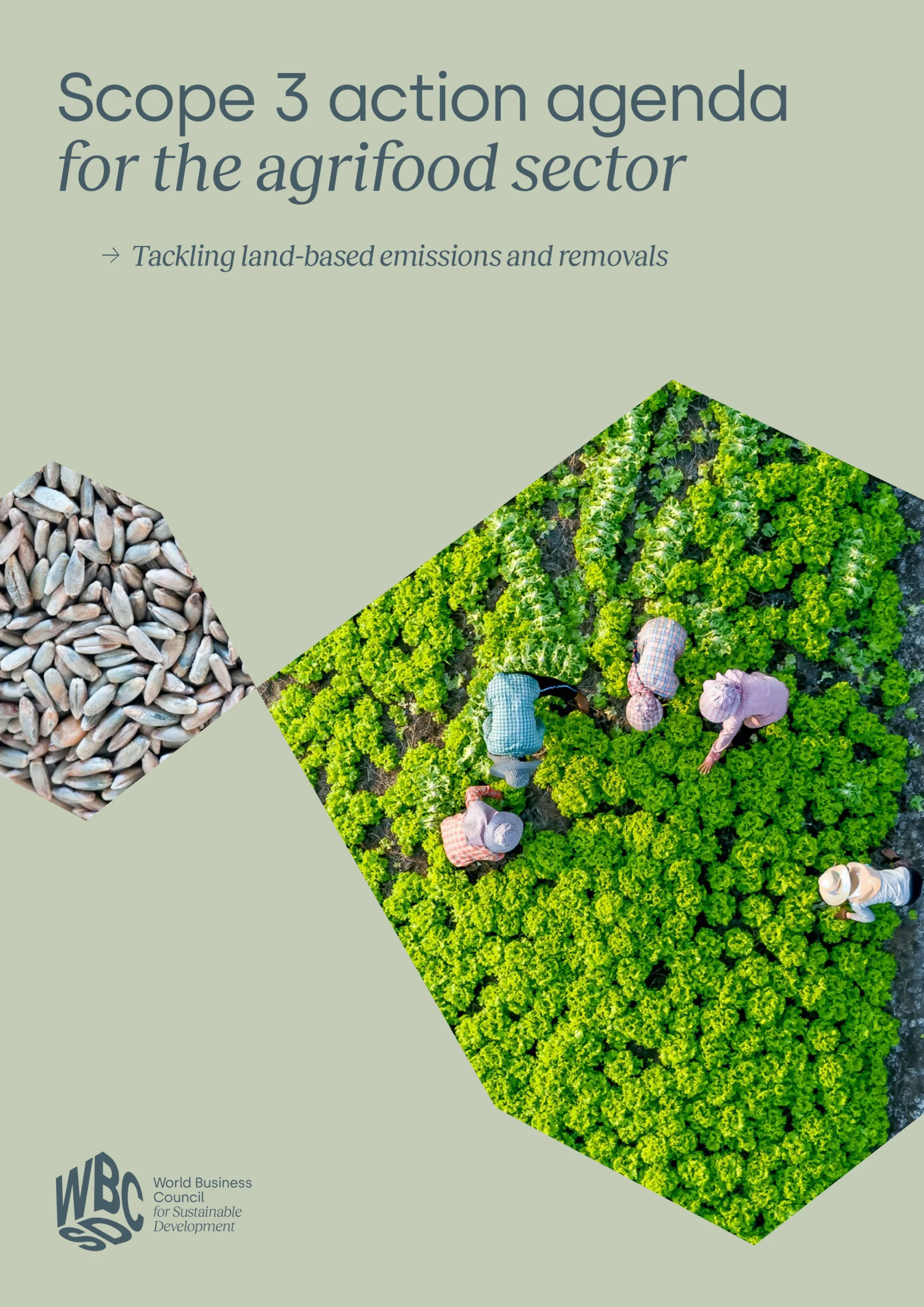Tackling Scope 3 emissions in Agricultural & Food value chains
Published: November 24, 2023

Agricultural and food value chains must address barriers to scope 3 emissions reductions and removals associated with land use. This is essential to accelerate in value chain interventions and the flow of much-needed investment.
WBCSD is working with members and partners to identify and tackle these challenges. This report represents the perspective of members and partners based on interviews and workshops during 2023, and identifies the challenges that prevent actors in the agriculture and food value chain from addressing scope 3 emissions associated with land use, and associated opportunities to accelerate scope 3 emissions reductions and removals.
Three priority actions were identified for WBCSD and other organizations to address the challenges and opportunities & advance the agenda.
- Align carbon accounting standards and practices
- Accelerate the adoption of standards and practices for scope 3 reductions and removals
- Coherence between in-value-chain, BVCM and nature-positive approaches
These findings inform WBCSD’s priorities to drive this topic in 2024, together with members and partners, through our agriculture & food scope 3 workstream.
About the Agriculture and Food Scope 3 Action Agenda
Addressing the barriers identified in this report will require collaboration across actors in the agrifood value chain and surrounding ecosystem.
To achieve this, WBCSD – through its Agriculture and Food Scope 3 workstream– will act as a convenor, action platform and advocate for accelerating reductions and removals in agrifood value chains, and the flow of investment.
To get involved in this collaboration across the agriculture & food value chain and wider ecosystem; contact Kate Newbury-Hyde newbury@wbcsd.org.
Download the full report (ENG).